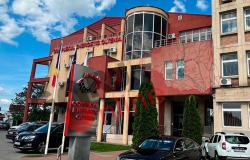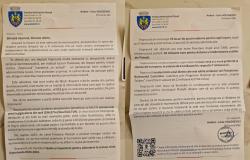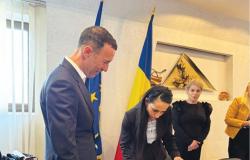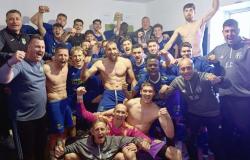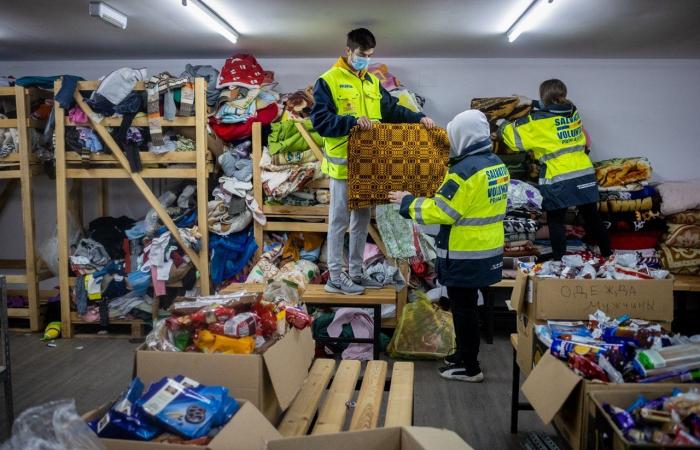
USR MEP Vlad Gheorghe explains, in an interview for News.ro, how the “United for Ukraine” group works, the community that came to the aid of Ukrainian refugees. He claims that a Romanian passport is “gold” in Ukraine and tells a symbolic episode: an aid truck sent from Romania was captured by the Russians in Ukraine, it was emptied, but the Ukrainian driver (ethnic Romanian) escaped alive for that he had a Romanian passport. Vlad Gheorghe criticizes the Romanian state for the slowness with which it acted in the refugee crisis.
Aid for refugeesPhoto: Bogdan Dinca
Rep: You have formed a group to support refugees in Ukraine. Where did this idea come from and when?
Vlad Gheorghe: On February 11, I made the group “United for Ukraine”, and on February 12 I made it public. There was a lot of information in the press – and it was extremely credible – that Putin would attack Ukraine, but I didn’t know when. It was absolutely obvious that Romania’s main problem would be refugees. And then because I don’t have the administrative power to prepare the whole state apparatus for refugees, I can say that I have the power to gather good people around this cause. I said that the best way to organize ourselves is a Facebook group. Indeed, it turned out to be a good way.
Rep: How many people are involved?
Vlad Gheorghe: In the first days, I think there were 1,000. On February 24, when the war began, there were 50,000, on February 25 there were about 80,000, and on February 27 there were exactly 200,000 per group. There are currently about 280,000. There are over 1,000 posts a day, that is, requests for help, and most are resolved. In the first days we made three links, just to get organized. There were three links that people with three types of help could sign up for: accommodation, transportation, and donations of goods.
Everything that was trivial to me, fantastic to them, changed their world
We have never raised money, primarily for logistical reasons, but especially for anti-fraud reasons. It was very easy for malicious people to interfere in these things. We didn’t have the ability to look for thieves and prevent them, so we said to focus on what we could do. I gathered tens of thousands of accommodation offers in those links: people came in, searched, saw what the accommodation looked like, and before it was made available to them, the house was checked by volunteers. We have some fantastic volunteers, a few thousand, who, in addition to group management, do a lot of things on the ground. We were the first ones with the NGOs at the customs points where refugees came: to Otopeni, to the North Station, where the red dots were and, again, very importantly, we had some volunteers who called day and night to those who they offered accommodation to check, to see where they were. In addition, we had to hide our emotions, because these people had very strong emotions anyway. People from Ukraine came after a 3-5 day trip. Many of them had been in customs for about 3 days. Mother, children and grandparents, that was about the family.
Rep: Was there a story that impressed you?
Vlad Gheorghe: Stories? There were tens of thousands a day. I was impressed by the people who hugged me at the train station for any trivial gesture: from a simple information, to a search in our databases for accommodation, etc. Everything that was trivial to me, fantastic to them, changed their world. This is the story of the volunteer: the man who does very little for himself, but who can change the refugee’s life. I think that’s the story that’s left.
Rep: You helped people who left Romania. What is their life now? Are you still in touch?
Vlad Gheorghe: Yes, yes. There are several types. For example, I now have refugees at my home in Brussels. we live together. My family and I and other Ukrainians. But we keep in touch with most of the people we’ve helped. Some of them found jobs, some of them integrated very easily, especially those who spoke a foreign language, preferably the language of the country where they went. This is the most successful story. But some of them did not find their place of any color. We had to help them relocate several times. Many of them even went back.
Rep: In Ukraine?
Vlad Gheorghe: Yes, in Ukraine, although the conditions are not the best. However, we have no people who have returned to the war zones.
Rep: So now you have a family of Ukrainians in the house?
Vlad Gheorghe: Now I have a family: a mother with two children – a 3 and a half year old boy (one year old with my son), another 11 and a half year old child and their grandparents. They are with me, my wife, and my two children.
At first, there was a great deal of panic, a great deal of despair. Basically, nothing worked. As time went on, people adapted, they got used to it
Rep: How often do you go to Ukraine?
Vlad Gheorghe: I have been almost every weekend since the war started, except during the period when I did COVID. I was in Kyiv three weeks ago.
Rep: What does the war look like?
Vlad Gheorghe: I have seen it from the beginning until now and there is an evolution. At first, there was a great deal of panic, a great deal of despair. Basically, nothing worked. In the first weeks, there was not much state. As time went on, people adapted, they got used to it. I went to Chernivtsi last weekend and had discussions with the governor of the region, a kind of prefect in our country. Apart from the fact that there were sandbags on the windows and there were soldiers on the street, people went out to the restaurant in the park.
Rep: Life is back to normal.
Vlad Gheorghe: Yes. Life is back to normal, life is stronger than anything. I’m not saying it’s a weird thing, I’m saying this is life. People get used to absolutely anything, they get used to evil, because they have to live on. The whole area of Chernivtsi has around 500,000 inhabitants and now hosts another half of this number. In the city of Chernivtsi alone, there are between 70,000 and 100,000 refugees, according to the latest figures.
Rep: How do Romanians view the war there? They are caught between the neglect of the Romanian authorities, who ignored the Romanian community in Ukraine, and the Russians who are bombing their country.
Vlad Gheorghe: At the beginning I worked with Ukrainian citizens of Romanian origin. They have a divided soul. Every second you ask them, they don’t think of leaving for Romania, they don’t think of leaving their country, but at the same time they still feel Romanian. They are patriots for Ukraine. There are even Romanians who volunteered to fight for Ukraine. Romanians in Ukraine are helping us send packages to the war zone. Many of them have Romanian passports and the small border traffic helps them with food, even fuel. A Romanian passport during this period is gold in Ukraine. You can cross the border, you can leave the country, you can do many things. I really have a story that our fellow volunteers told me the other day. They sent a truck that was captured by the Russians.
Rep: Uploaded with?
Vlad Gheorghe: With food and medicine.
This image is emblematic: a special aid truck sent with a Romanian driver to Kharkov was stopped by the Russians, stolen, but the driver was allowed to return with the truck empty.
Rep: Not with weapons.
Vlad Gheorghe: No, no. We do not send weapons, only food, medicine and personal care products. That’s all we send. The truck was stopped by the Russians, the products were stolen. But because that truck had Romanian numbers and the driver had a Romanian passport, they didn’t do anything to him. This image is emblematic: a special aid truck sent with a Romanian driver to Kharkov was stopped by the Russians, stolen, but the driver was allowed to return with the truck empty. If he did not have a Romanian passport, the driver would have been shot and the truck would have been completely stolen. So the driver’s escape was the Romanian passport.
Rep: Are you afraid that the Republic of Moldova will also be attacked?
Vlad Gheorghe: No. I am not afraid. I believe that, at this moment, the Russians do not have the military capacity to attack the Republic of Moldova, from a strategic point of view. They are suffering so many losses, they have spread so far and so badly on the Ukrainian front that I do not think they now have the military capability to attack the Republic of Moldova. Instead, we must continue to be prepared to help, and Moldovans need much more help than they do now, including from the European Union.
The Romanian authorities have not been anywhere and are not doing much now. In the first week, they were not at the border. They appeared a week later, when things had already stabilized due to NGOs
Rep: Do you have anything to blame the Romanian authorities in the refugee crisis?
Vlad Gheorghe: Absolutely everything. The Romanian authorities have not been anywhere and are not doing much now. Let’s be very clear. In the first week, they were not at the border. They appeared a week later, when things had already stabilized due to NGOs. If it weren’t for the volunteers and the associations, we would have had a huge humanitarian problem in Romania. I repeat, the authorities have been nowhere. One week later, Raed Arafat came out and said we had it all.
Rep: I also did an interview with Raed Arafat and he spoke insistently about this collaboration between the state and NGOs.
Vlad Gheorghe: No. The NGOs took over the state’s responsibilities. This means collaboration in the vision of the Romanian state. I can tell you, also from personal experience, that apart from the customs at Isaccea, where the people were absolutely phenomenal and super cooperative, I could not cooperate with any border properly. The authorities refused to cooperate and sometimes even confused us, just because we were not authorities. And if we make comparisons between politicians, Maia Sandu has been at customs since day one. Klaus Iohannis came on the tenth day, when things were already clear. Of course, the president does not have to take care of the organization, but the president sets an example and pushes society by his example. You, when you come on the tenth day, pay a visit, three pictures and you’re gone … I repeat, let’s compare with the neighbors, with Maia Sandu, who was there from the second one. That’s how it’s done!
Tags: Vlad Gheorghe founder United Ukraine group truck Kharkov stopped Russians stolen driver allowed return emptyhanded Romanian passport shot
-
